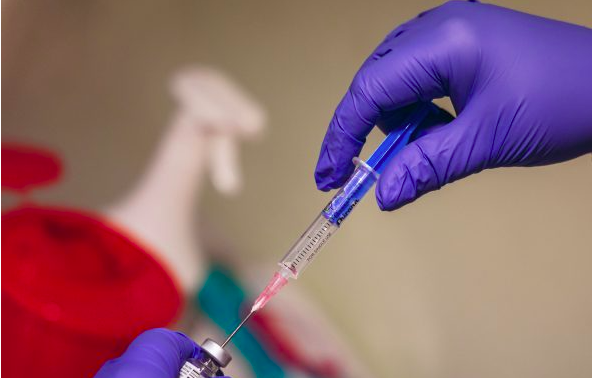Ruth Smith CEO of Active Care Group and its Christchurch Group division discusses the new highly virulent variant of COVID, vaccinations, and infection prevention and control (IPC)
A nationwide COVID-19 vaccination programme for the UK’s healthcare workforce must be fast-tracked urgently if we are to maintain staffing levels as critical care services across the nation reach breaking point.
The Statista website, tells us how many people in the UK have to date tested positive for COVID-19 and how many have died – and these figures are not helped by the sharp rise of the new variant of SARS-Cov-2 reported in the Lancet, which is 70% more transmissible than the previously circulating form of the virus, and as such, tightens its grip.
Scheduling a workforce vaccination programme
For managers, the key issue is scheduling a workforce vaccination programme that takes into consideration those that are shielding, those that are in isolation phases and also those who have in the past suffered anaphylaxis and are not able to have the vaccine yet. Stress levels must also be monitored carefully, especially for those staff who have grave concerns about contracting COVID whilst travelling on public transport to one of the COVID vaccination centres.
Until the day that the entire UK healthcare workforce is vaccinated, it’s important to ensure that twice-weekly staff complete lateral flow tests – also known as lateral flow immunochromatographic assays or rapid tests – used to detect the presence of COVID. If the device indicates there is an issue, send them instantly for a further full PCR COVID test and request that they self-isolate.
Ensure too that you perform regular risk assessment and fit testing – i.e. implementing the pass/fail test method that uses your sense of taste or smell or your reaction to an irritant to detect leakage into the respirator facepiece. In this way, you can ensure their masks still fit them well and provide them with full levels of protection. Be mindful too that post-COVID staff may now have lost their sense of taste which will impact mask fit testing and present further fit testing issues.
In the meantime, be aware that the intense pressure of the current working environment can impact the wellbeing of your staff and ensure that the relevant psychological support is in place.
Infection protection and control (IPC)
And remember that in terms of infection protection and control, the same key rules apply to staff:
- Exercising optimal hand hygiene – regularly washing their hands with soap and water for at least 20 seconds, then drying them thoroughly.
- Using hand rub that contains at least 60% alcohol when soap and water are not accessible.
- Maintaining a physical distance of 2 metres between people to prevent the spread of this contagious virus.
- Prior to entry of a unit, donning aprons, fluid repellent gowns, gloves, a surgical mask and eye protection. This applies to all clinicians and care professionals that work within 2 metres of a confirmed or suspected COVID-19 patient.
- Providing high-level training and support for housekeeping staff – many of whom may be from the BAME community who according to the National Office of Statistics account for 11% of those hospitalised with COVID-19.
Information for this article was kindly provided by two divisions of Active Care Group – Christchurch Group, specialists in post-acute rehabilitation programmes for COVID patients and Remeo Healthcare, specialists in acute weaning and respiratory rehabilitation.











